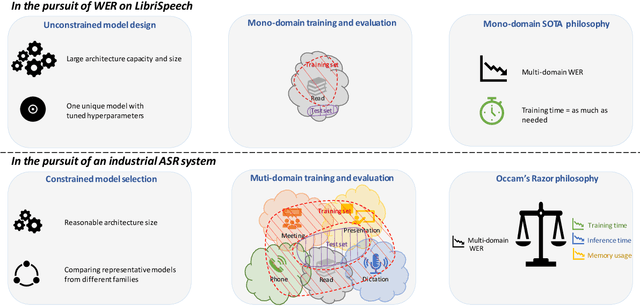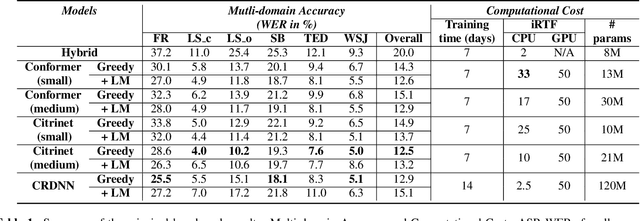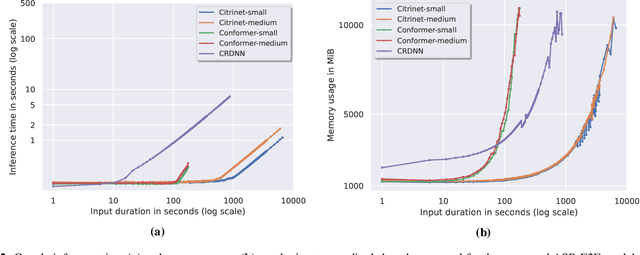Are E2E ASR models ready for an industrial usage?
Paper and Code
Dec 09, 2021


The Automated Speech Recognition (ASR) community experiences a major turning point with the rise of the fully-neural (End-to-End, E2E) approaches. At the same time, the conventional hybrid model remains the standard choice for the practical usage of ASR. According to previous studies, the adoption of E2E ASR in real-world applications was hindered by two main limitations: their ability to generalize on unseen domains and their high operational cost. In this paper, we investigate both above-mentioned drawbacks by performing a comprehensive multi-domain benchmark of several contemporary E2E models and a hybrid baseline. Our experiments demonstrate that E2E models are viable alternatives for the hybrid approach, and even outperform the baseline both in accuracy and in operational efficiency. As a result, our study shows that the generalization and complexity issues are no longer the major obstacle for industrial integration, and draws the community's attention to other potential limitations of the E2E approaches in some specific use-cases.
 Add to Chrome
Add to Chrome Add to Firefox
Add to Firefox Add to Edge
Add to Edge